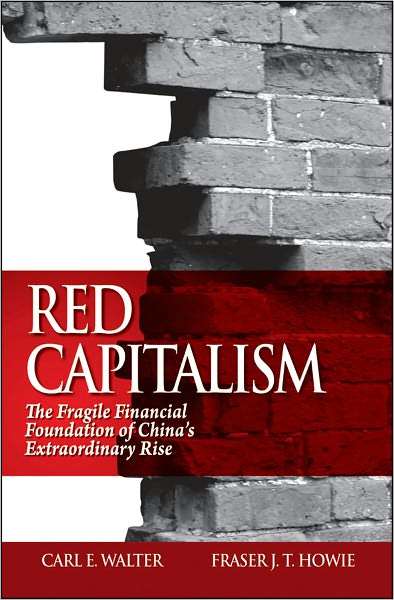Chinese Capitalism isn’t magic.? Some parts are a little sketchy.? There are several difficult to sustain aspects of Chinese economic/financial policy.
1) The banks are basically extensions of the Chinese government.
2) Loans that the banks make are often politically motivated, made to those connected within the party; many of those loans are not economic, and the loans don’t perform.
3) Asset management companies are formed to absorb the bad debts when they become a risk to the banks.? These are funded by the Ministry of Finance, which effectively shifts losses back to the government in an indirect way, often via the People’s Bank of China.
4) China has massive foreign currency reserves, but the ability to use them domestically is limited.
5) Since 2008, forcing the the banks to lend has accelerated.? In understanding the indebtedness of the Chinese nation, one must aggregate and net the debts of the banks and other financial entities sponsored by the government.? In the US, that would mean adding and netting the debts of the GSEs.
6) The financial markets of China are bank-centric.? The bond market does not play much of a role, except that the banks absorb many of the bonds, sometimes at negative interest spreads.
7) Chinese finance can be very complex, with difficult-to-understand flowcharts for cashflow and promises, some of which hide bad debts eventually absorbed by the PBOC.? They are another example of how structured finance can obscure economic results.
8 ) When companies went/go public in China, the rewards often disproportionately went/go to party leaders and friends/family thereof.
In short, what privatization has happened in China has benefited those connected to the Party, while the banking sector the economy is the slave of the Government, despite the offering of shares to the public.
I recommend this book highly, and think the authors did a good job in being realistic about China and its financial economy.? China has a weird economy.? They could subsidize and own businesses explicitly, but instead, the subsidies are hidden inside financing.
But wait, what is the endgame here?? If all of the banks are mere extensions of the government, once inflation gets large enough, the Chinese government will have to modify/abandon what they are doing.? China steals from its consumers (financial repression) to aid its producers, who in turn give money to the Party, with whom the producers are in league.
Quibbles
None.
Who would benefit from this book: If you want to understand the Chinese economy, you will like this book.? If you want to, you can try to buy it here: Red Capitalism: The Fragile Financial Foundation of China’s Extraordinary Rise.
Full disclosure: I asked the publisher for the book and he sent it to me.
If you enter Amazon through my site, and you buy anything, I get a small commission.? This is my main source of blog revenue.? I prefer this to a ?tip jar? because I want you to get something you want, rather than merely giving me a tip.? Book reviews take time, particularly with the reading, which most book reviewers don?t do in full, and I typically do. (When I don?t, I mention that I scanned the book.? Also, I never use the data that the PR flacks send out.)
Most people buying at Amazon do not enter via a referring website.? Thus Amazon builds an extra 1-3% into the prices to all buyers to compensate for the commissions given to the minority that come through referring sites.? Whether you buy at Amazon directly or enter via my site, your prices don?t change.


One thought on “Book Review: Red Capitalism”
Comments are closed.